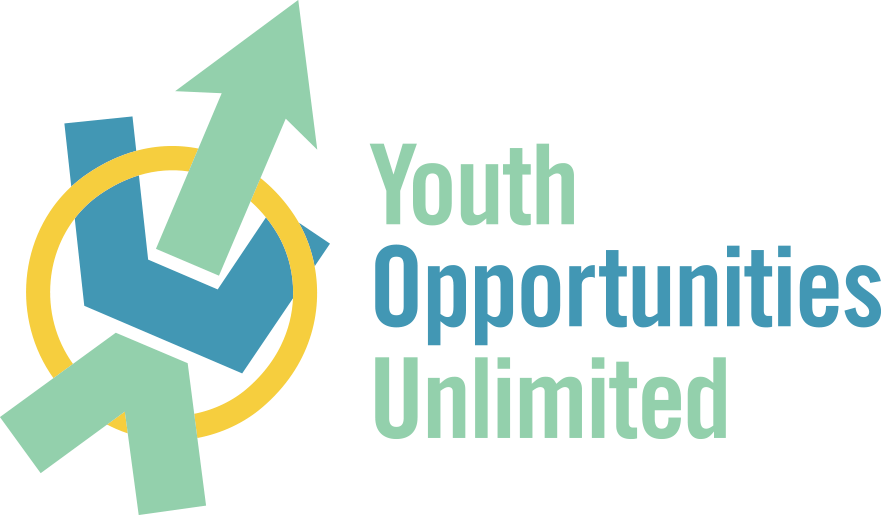PSEOP (College Credit Plus)
Savannah Parker, Summer 2015
The PSEOP team is a unique team because they have the opportunity to earn college credit from Cleveland State University through the PSEOP, now called College Credit Plus at CSU. The Mayor’s program allows students to experience the rigors of college classes with no cost to the student; all credits, books and other fees are paid for by the Department of Utilities within the Summer Youth Employment Program. These dedicated high-school students also experience college through interaction with professors and other staff.
This year the PSEOP team took Introduction to Environmental Science, a class that gave them the understanding of a wide range of environmentally based topics including pollution, the greenhouse effect, ecology, the water cycle, thermodynamics, and food webs. One of the students, Richard Radice, a senior at John Marshall High School, described the class as fun and interesting. Richard also believes that what he’s learning is productive and that he’s doing his part in a constantly changing Cleveland.
In fact, quite a few of the students are glad that they get to participate in a free college class. Several of the students indicated that the Mayor Frank G. Jackson Summer Youth Employment Program is an outstanding opportunity worth pursuing this summer. Riley Parker, another senior from John Marshall High School, especially thought that PSEOP classes are a great benefit. She said: “I believe that I am helping my city by being educated.” Another student, Donella Monk, a senior at Garrett Morgan School of Science, said “I have learned more about sustainability, brownfields and greenhouse gas emissions”.
Residing at Water Pollution Control’s headquarters, the team is prepared to use the information they received in their two-hour class to help them out in the field. They apply this knowledge while taking assessment of sites for Reimagining Cleveland green spaces, a program created by the City of Cleveland and facilitated by Neighborhood Progress to revitalize vacant land in Cleveland. ReImagining Cleveland is a vacant land reuse initiative supported by the City of Cleveland’s Department of Economic Development, The City of Cleveland & Cuyahoga County Land Banks, Cleveland Neighborhood Progress Inc. and many other local institutions invested in creating sustainable solutions for Cleveland’s vacant land issue. The program specializes in taking plots of land in the City of Cleveland owned by land banks and transforming them into community green spaces. A green space is an area where a pocket park, garden, orchard, park, vineyard, and the like is maintained in an otherwise urban environment for recreational or aesthetic purposes.
ReImagining Cleveland is supported by strong citywide governmental and non-governmental partnerships, and a broad base of residents who take care of the new green spaces. The PSEOP team went to some of the sites to evaluate their development, after ReImagining Cleveland had installed these new green spaces. The results of the team’s inventory will be given to ReImagine Cleveland to see if additional funding can be provided to the community members that originally received funding for their proposals. The assessments will also be used to determine whether or not the plots of land where the green spaces are will be leased out again to the participants who are supposed to take care them.
Another project that the PSEOP team tackled this summer is a phase I brownfield assessment. A brownfield is a plot of land that currently or previously has the potential to be contaminated with hazardous material by the former owners or businesses on that land. The PSEOP team will conduct the first phase in a three phase process. In the first phase the team will gather information on the plots of land to find out what types of activities took place in the past on those properties. After research is done on the area it is sometimes determined that it will continue into phase 2 brownfield assessments, which takes steps to find out what exactly, if anything, is contaminating the land. The third and final step is to come up with a detailed plan of what steps should be taken to help rehabilitate the land so that it can be reused for economic development.
This process is extremely helpful to the City of Cleveland because there are a lot of vacant properties, especially in areas that used to be industrial sites. A brownfield assessment of these properties can lead to them being reoccupied and used for new businesses, farmers markets, green spaces and so much more. The PSEOP team is also acquiring new skills through these assessments. They have learned how to collect historical information through interviews, and research at the County Archives. They also learned how to coalesce their research into a single, official report that will be presented to Dave Ebersole, Brownfield Program Manager, of the Cleveland Department of Economic Development. Both projects help the City of Cleveland because they can provide new purpose to vacant and unused land. The ReImagine Cleveland project helps to bring communities together and make what was once a neighborhood eyesore into a beautiful attraction. The phase I brownfield assessment will allow for the Cleveland Department of Economic Development to determine which properties can be remediated to encourage new economic growth in Cleveland. This means we can say hello to a more picturesque and revitalized Cleveland; a better Cleveland. All in all, the PSEOP team devoted their summer to making Cleveland a better place to live.


